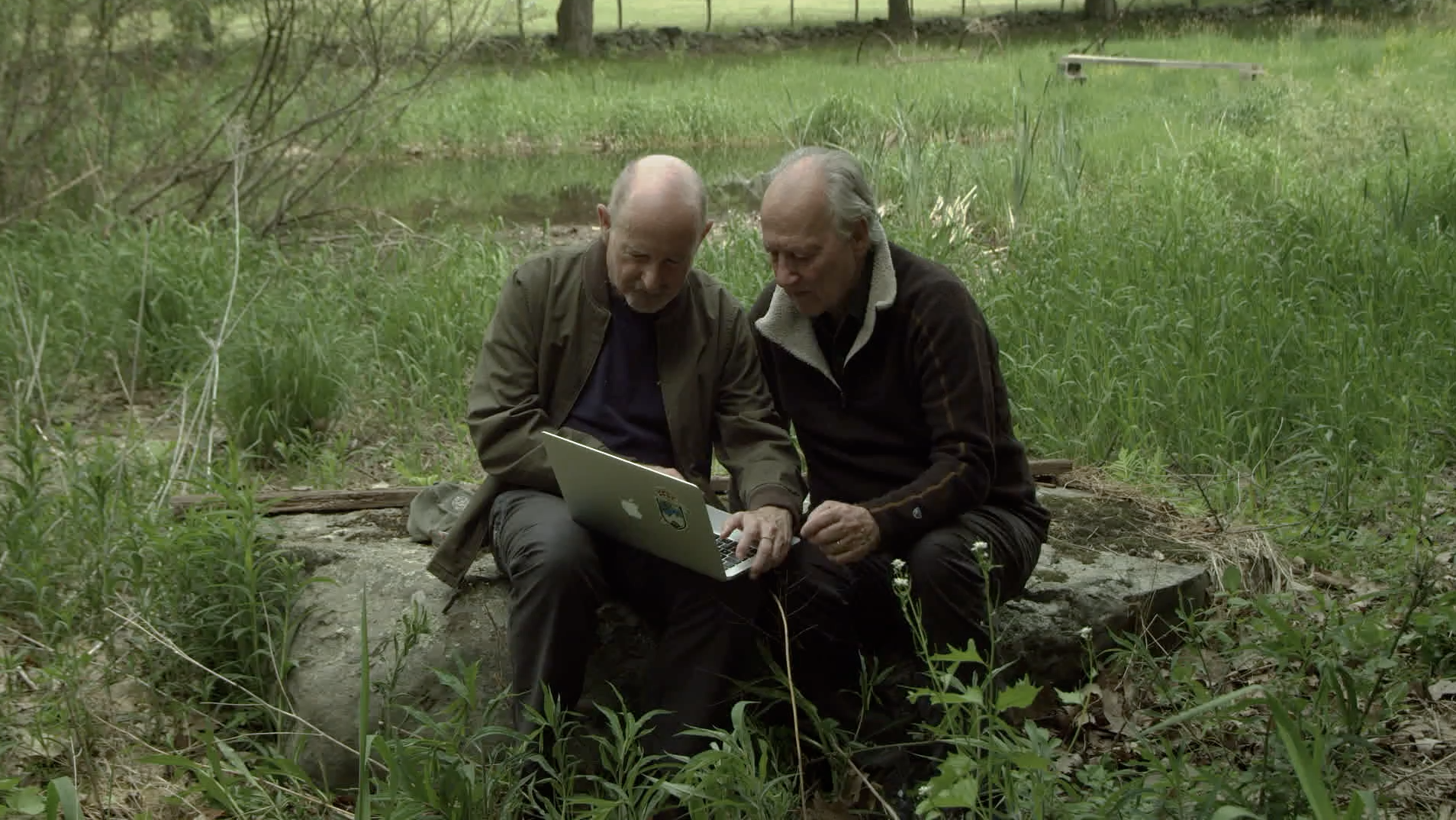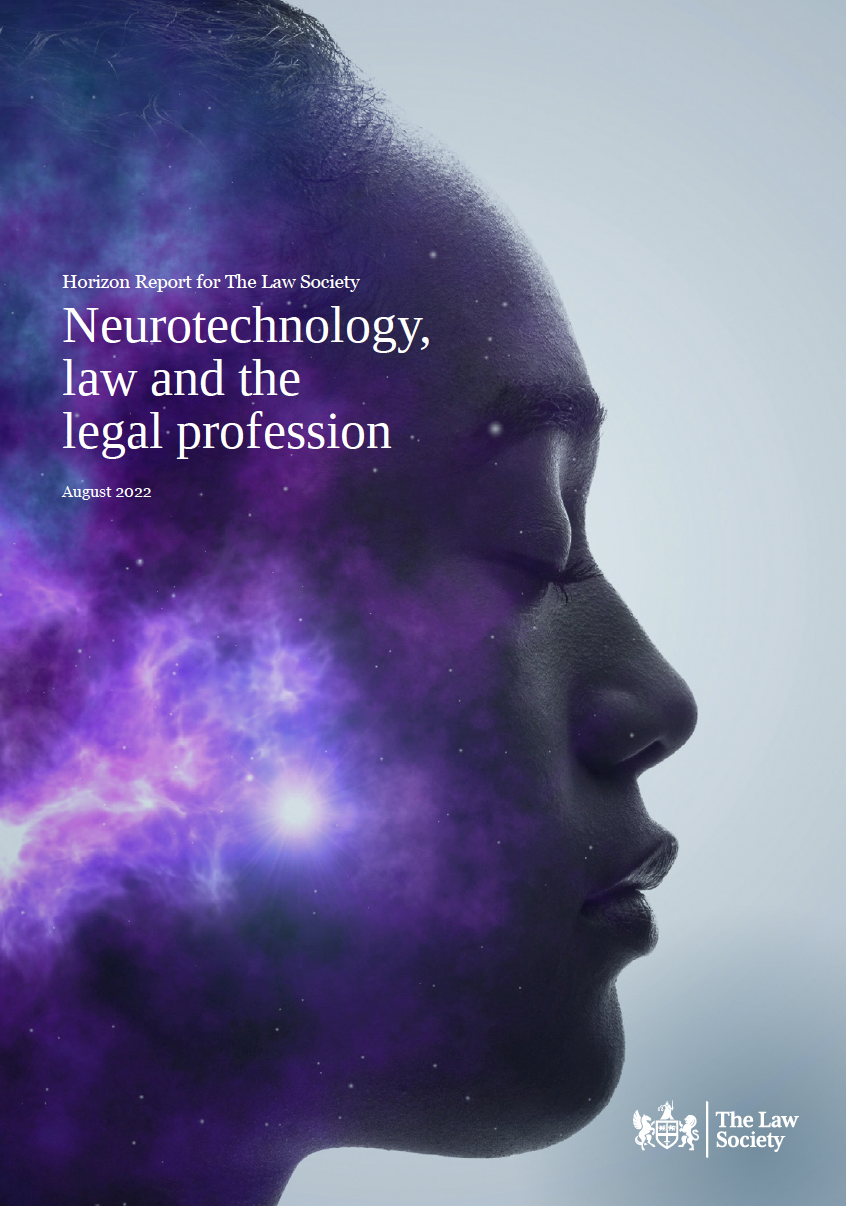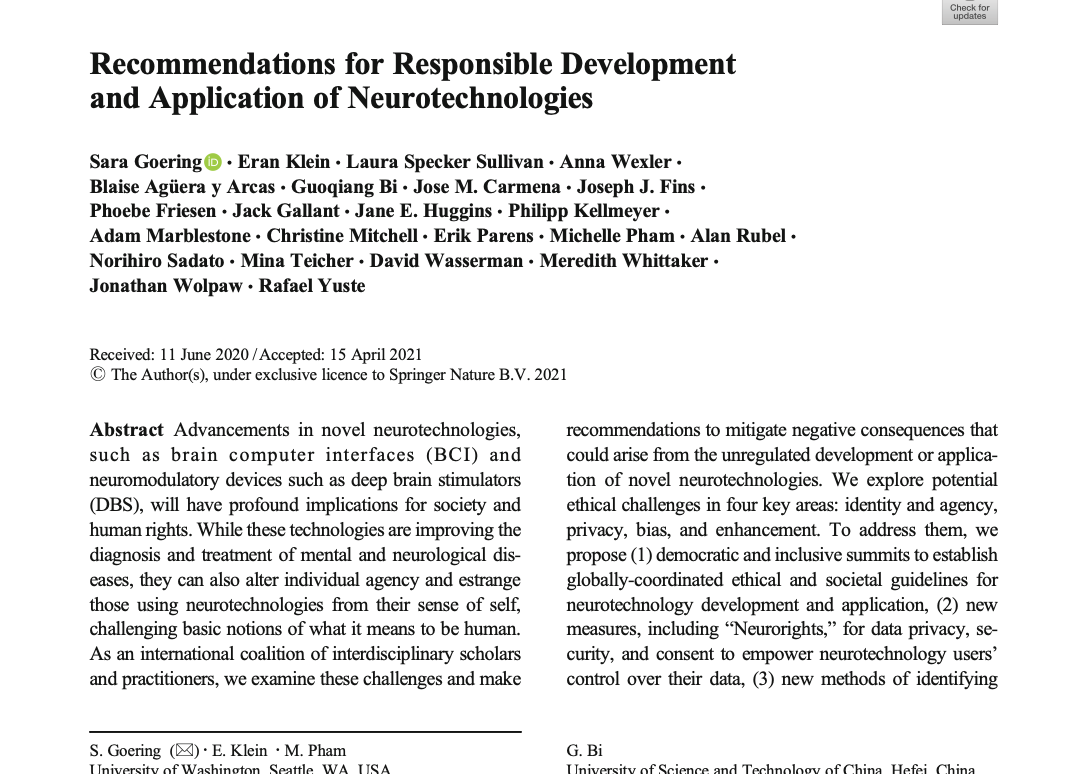
The Neurorights Foundation
New Human Rights for the Age of Neurotechnology
Promoting innovation, protecting human rights, and ensuring the ethical development of neurotechnology.
Interact with our Instagram Posts Below!
The Challenge: Advances in Neurotechnology Have Far Outpaced Global, National, and Corporate Governance
Any technology that records or interferes with brain activity is defined as Neurotechnology. Neurotechnology, especially brain-computer interfaces, has the potential to foundationally alter society. In the coming years, it will be possible to decode thought from neural activity or enhance cognitive ability by linking the brain directly to digital networks. Such innovations could challenge the very notion of what it means to be human.
The Neurorights Foundation works on this issue at four levels:
-
Neurotechnology raises fundamental human rights challenges that were never envisioned by today’s international human rights treaties. Instead, today’s era calls for a novel protection framework: NeuroRights
-
Governments need to develop and adopt a new legal and regulatory framework to govern the development and use of neurotechnology that will provide protection against the misuse of neurotechnology.
-
It is essential to develop a new ethical code in collaboration with companies, entrepreneurs, scientists, and investors that can set the standard for self-governance and accountability.
-
It is important that wide efforts be undertaken to highlight the exciting current and forthcoming developments in neurotechnology and explain how such technology might be misused or abused.

Our Mission: A human rights framework to inform Neurotechnology policy
NeuroRights Protection
Our goal is to protect the human rights of all people from the potential misuse or abuse of neurotechnology.
We are working to incorporate five Neuro-rights that have been identified as critical into international human rights law, national legal and regulatory frameworks, and ethical guidelines.
A new documentary film
Theater of Thought
Recent Publications:
-
Neuro-Rights and New Charts of Digital Rights: A Dialogue Beyond the Limits of the Law
In this article, the authors address some of the most pressing issues that stem from the relationship between the technological advancements of the twenty-first century and legal regulation. The development of neurotechnology and artificial intelligence (AI), while offering considerable opportunities for the betterment of social life, also poses unprecedented risks.
-
Neuro Rights: A Human Rights Solution to Ethical Issues of Neurotechnologies
A potential solution to ethical issues of neurotechnologies are “NeuroRights,” five new human rights devised to protect individuals in the face of new neurotechnologies. The NeuroRights include the right to personal identity, free-will, mental privacy, equal access to mental augmentation, and protection from algorithmic bias.
-
A Technocratic Oath
While the development of emergent neurotechnology and AI has therapeutic potential, it also raises various ethical and societal consequences, putting the mental privacy, identity and agency of citizens potentially at risk. As one approach to provide ethical guidelines to novel neurotechnologies, we propose a “Technocratic Oath,” as a pledge of simple, fundamental ethical core principles to be adopted by Neurotechnology developers and the industry.

Press

















